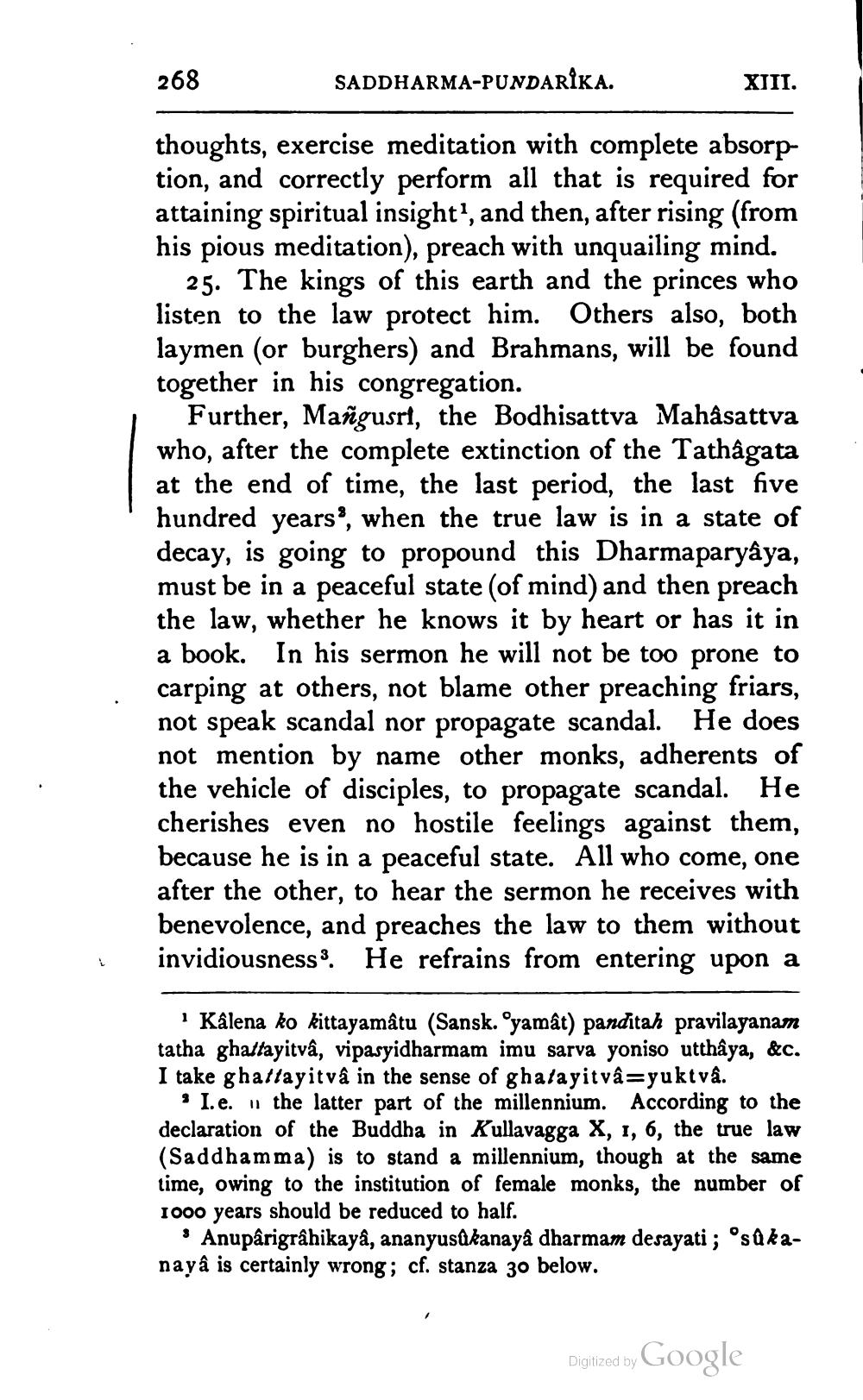________________
268
SADDHARMA-PUNDARÍKA.
XIII.
thoughts, exercise meditation with complete absorption, and correctly perform all that is required for attaining spiritual insight?, and then, after rising (from his pious meditation), preach with unquailing mind.
25. The kings of this earth and the princes who listen to the law protect him. Others also, both laymen (or burghers) and Brahmans, will be found together in his congregation.
Further, Mangusri, the Bodhisattva Mahâsattva who, after the complete extinction of the Tathagata at the end of time, the last period, the last five hundred years', when the true law is in a state of decay, is going to propound this Dharmaparyaya, must be in a peaceful state (of mind) and then preach the law, whether he knows it by heart or has it in a book. In his sermon he will not be too prone to carping at others, not blame other preaching friars, not speak scandal nor propagate scandal. He does not mention by name other monks, adherents of the vehicle of disciples, to propagate scandal. He cherishes even no hostile feelings against them, because he is in a peaceful state. All who come, one after the other, to hear the sermon he receives with benevolence, and preaches the law to them without invidiousness. He refrains from entering upon a
Kâlena ko kittayamatu (Sansk. oyamât) panditah pravilayanam tatha ghattayitva, vipasyidharmam imu sarva yoniso utthaya, &c. I take ghattayitva in the sense of ghatayit vâ=yuktva.
3 I.e. the latter part of the millennium. According to the declaration of the Buddha in Kullavagga X, 1, 6, the true law (Saddhamma) is to stand a millennium, though at the same lime, owing to the institution of female monks, the number of 1000 years should be reduced to half.
• Anupârigrâhikayâ, ananyusůkanayâ dharmam desayati; osûkanayâ is certainly wrong; cf. stanza 30 below.
Digitized by Google




